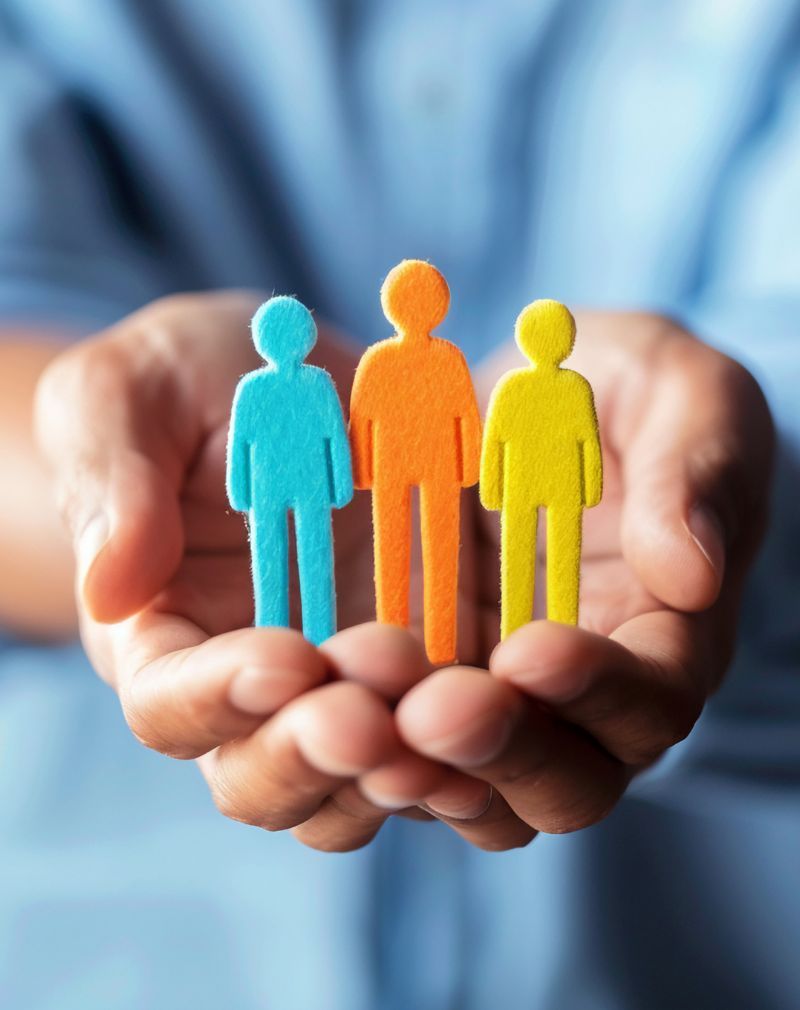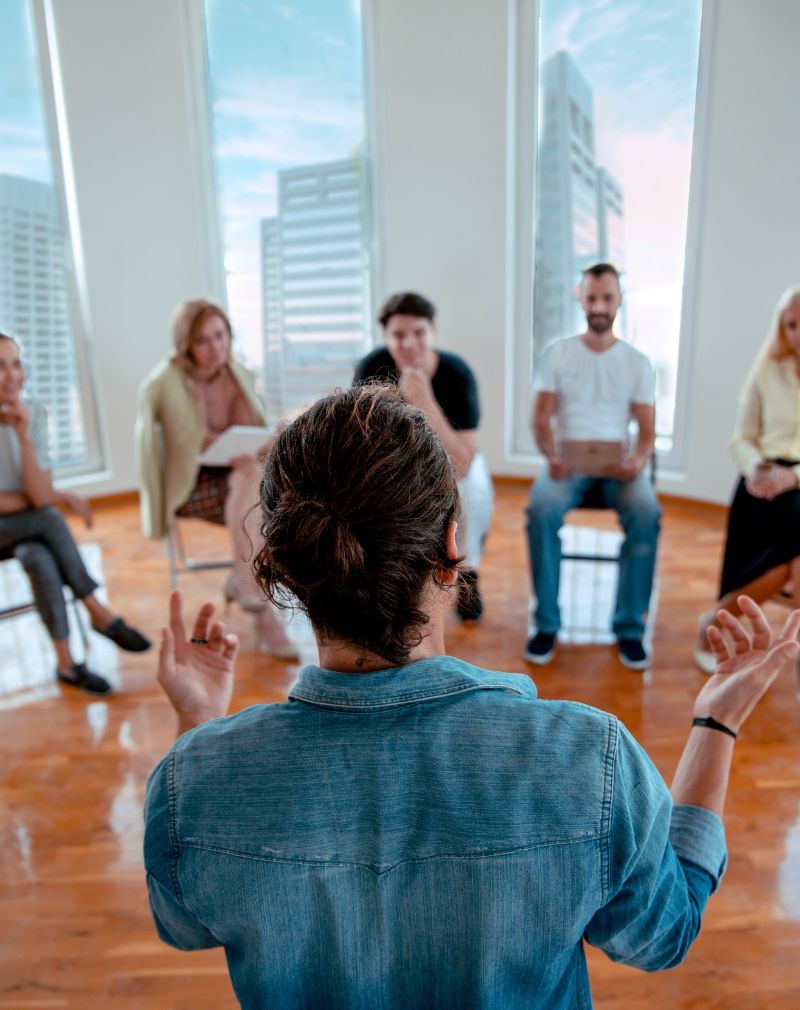Nearly one in four employees in the UAE wakes up already running on empty. Not lazy. Not weak. Just tired in a way that sleep can’t fix.
We talk about safety at work all the time, fire drills, helmets, first aid kits. But the truth is, most accidents don’t start with a fall or a broken machine.
They start with a distracted mind, a body running on stress, a person trying to hold it together when they’re already unraveling.
That’s the part we don’t talk about enough. Mental health isn’t a private matter you leave at home. It walks into the office with you. It sits through meetings. It drives the forklift. It signs the contracts. And when it starts to slip, so does safety.
At The American Wellness Center in Dubai Healthcare City, our Employee Assistance Program exists for exactly this reason. We help employees and companies face what’s really happening behind the polite smiles and quiet exhaustion.
Because healthy minds don’t just work better, they work safer.
It’s time we stop treating mental health as a side note to physical safety. They’re the same conversation. And it’s one the UAE’s workplaces can no longer afford to avoid.
The Hidden Link Between Mental Health and Workplace Safety
Most people think safety means helmets, harnesses, or seatbelts. But the real danger often starts in the mind, long before anything physical happens.
When stress piles up, your brain slows down. You forget small steps, lose focus, and start cutting corners. That’s when accidents happen.
Chronic fatigue and emotional strain make reaction times slower by more than a third. Heart rate, breathing, and coordination all shift when the body stays in “fight or flight” for too long. Your mind isn’t calm enough to catch the small mistakes before they grow.
Here’s what that looks like up close:
- A tired nurse misreads a label.
- A distracted driver takes one second too long to brake.
- A warehouse worker slips because his head is still stuck in yesterday’s problem.
These moments aren’t rare, they’re predictable. And they remind us that mental health is not separate from physical safety, it’s the foundation of it.
The State of Mental Health in UAE Workplaces
Across the UAE, more employees are quietly burning out. Not because they’re weak, but because they’re human and stretched thin.
Nearly seven out of ten workers say job stress is their top health concern. That’s not just about pressure. It’s about pace, loneliness, and silence.
Many expats live far from family support. Many locals balance demanding roles with community and family expectations. And almost everyone feels the weight of proving themselves.
The hardest part? Most don’t ask for help until it’s already too heavy to carry.
- Long hours are often worn as a badge of honor.
- “I’m fine” becomes a daily mask.
- Burnout gets mistaken for dedication.
Still, change is coming. UAE institutions are investing more in workplace wellness and mental health awareness. Businesses are learning that a supported employee is a safer, more productive one.
The challenge now is to move from awareness to action. That’s where structured programs like the Employee Assistance Program at The American Wellness Center in Dubai Healthcare City come in.
How Stress and Burnout Affect Job Performance and Safety
Stress isn’t invisible. It leaves fingerprints on everything you do. On your focus. On your decisions. On your body.
When cortisol, the body’s stress hormone stays high, it fogs memory and dulls alertness. You’re there, but not fully present. You react slower, remember less, and feel drained even before the day starts.
Burnout follows close behind. It’s not just tiredness. It’s emotional flatlining, the feeling that nothing you do matters. And that feeling spreads fast through teams and workplaces.
Across industries, the cost is huge. Lost concentration means lost safety. Lost motivation means missed warning signs. Together, they create accidents that no checklist can prevent.
- Fatigue hides behind professionalism.
- “Just push through” becomes the most dangerous sentence at work.
- You can’t build a safe workplace on exhausted minds.
The truth is simple: stress isn’t just a health issue, it’s an operational risk. Protecting mental health protects everything else.
Building a Mentally Healthy Workplace in the UAE
A healthy workplace isn’t built from rules or slogans. It starts with how people treat each other especially on hard days.
Every team, every office, carries quiet stories. The employee who hasn’t slept well in weeks. The manager who feels pressure but hides it. The newcomer trying to adjust to a culture and workload all at once.
These are not exceptions. They’re normal human struggles.
That’s why workplace mental health can’t be one-size-fits-all. It has to respect who people are, where they come from, and what they carry.
Regular mental health screenings, awareness talks, and confidential check-ins through The AWC at Dubai Healthcare City Employee Assistance Program give people a safe place to start.
When leaders listen with compassion, the tone of the entire workplace changes.
- Mental health doesn’t improve through posters. It improves through people.
- A quiet “how are you, really?” can do more than any policy on paper.
- A flexible schedule sometimes prevents a burnout that no bonus can fix.
In the UAE’s diverse workforce, cultural respect matters. Some employees may not have words for what they feel, or may see counseling as weakness. It’s our job, as professionals and colleagues, to show that care is strength and not shame.
The Role of The American Wellness Center’s Employee Assistance Program
Our Employee Assistance Program connects emotional wellbeing directly to workplace safety. We help employees before small stress turns into breakdown, and before exhaustion becomes risk.
Here’s how it works in real life:
- Confidential counseling so staff can speak openly without fear of judgment.
- Crisis intervention when workplace accidents or trauma leave invisible wounds.
- Stress management and emotional intelligence workshops that teach practical ways to cope, not just theories.
- Support for HR teams to plan safe, gradual returns to work after illness or emotional recovery.
Companies that adopted structured EAPs in the UAE have seen real results. fewer absences, better teamwork, and higher morale. People come back to work not just ready, but able.
What Employers Can Do Right Now
Every organization, big or small, can start today. You don’t need a full program to make a difference; you just need awareness and action.
Start by looking inward. What’s draining your team? Long hours? Poor communication? Fear of speaking up? An honest wellbeing audit can reveal what no survey ever will.
Then act on what you find:
- Write clear mental health policies that people can actually follow.
- Train supervisors to spot early signs of stress, not just poor performance.
- Encourage regular breaks and movement—productivity thrives when people breathe.
- Talk about therapy like you talk about physiotherapy. Both heal, just in different ways.
Most importantly, normalize asking for help. It’s not weakness. It’s maintenance; the same way you’d check your blood pressure or fix a broken chair.
Healthy minds don’t happen by chance. They happen when care becomes culture. And that’s a change worth leading.
Where Safety Begins Again
We see it every week. Good people who waited too long to talk. Leaders who thought silence was strength. Teams that broke down slowly, one sleepless night at a time.
Mental health isn’t a luxury. It’s survival. And in the workplace, it’s the difference between getting through the day and getting hurt by it.
You can have all the safety signs, all the checklists, all the protocols. But if the people behind them are running on fear, exhaustion, or grief; it’s only a matter of time.
At The American Wellness Center in Dubai Healthcare City, we’ve built our Employee Assistance Program for one reason: to make sure no one faces that breaking point alone.
To give every worker, every manager, every team a place to breathe, talk, and start again, safely.
Because protecting minds is protecting lives. And safety, real safety, starts with care.
If you’ve read this far, you already know it’s time. Let us take the next step with you.



